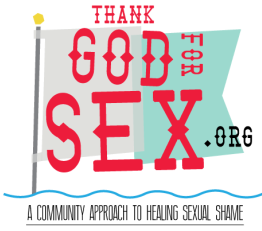 I’ve been obsessing all month over the SCOTUS opinions on the two historic cases around same-sex marriage. Yesterday, I nearly missed my bus due to lingering too long over the SCOTUS blog‘s liveblog of the morning announcements. Today, I felt anxious enough that I bummed a cigarette off of someone. I was mentioning how obsessive I’ve become about this to a friend who replied, “Yeah, I’m keeping up with the announcements by watching your facebook updates.” To start reading at the beginning of the series, click here.
I’m posting this before I find out tomorrow in 7 hours what the SCOTUS says about DOMA or Prop 8. While most of you will not read these words until after we’ve heard the news, I felt like it was important to say this now. ———– I’ve been obsessing all month over the SCOTUS opinions on the two historic cases around same-sex marriage. Yesterday, I nearly missed my bus due to lingering too long over the SCOTUS blog‘s liveblog of the morning announcements. Today, I felt anxious enough that I bummed a cigarette off of someone. I was mentioning how obsessive I’ve become about this to a friend who replied, “Yeah, I’m keeping up with the announcements by watching your facebook updates.” Yup. ———– But I need to be clear about a couple of things. 1) Even if, by some miracle, the Supreme Court repealed DOMA and ruled in favor of same-sex marriage in California, laying groundwork for federal recognition of the marriages already recognized in a number of states, there’s not a lot of immediate practical implications for me. Which is a grumpy-cat, long-way of saying “I’m still available.” 2) What I really mean to say with number 1 up there, is that I’m not dependent on the legal system to tell me who I am or who I can or can’t share my love and life with. That is not, in any way, to say that I don’t want legal equality. I also want national laws protecting jobs and housing for all LGBTIQ persons. I also want families to stop rejecting their queer children. I want churches to practice the radical hospitality of Jesus (even though I don’t believe accepting your own Queer members is radical hospitality, I think that’s just normal love of your neighbors and family). ———-- And this is where I find myself on the eve of the SCOTUS announcements: recognizing that these decisions have the power to impact how others are legally allowed to treat me, but they don’t auto-magically impact how people actually will treat me, and more importantly,they don’t impact who I am or how I understand my own identity or relationships. At best they are tools to help other people come to terms with how to honor what I know about myself already. In short, same-sex marriage laws (along with LGBTIQ job and housing protections) are not for Queer people–they’re for straight people in a heteronormative society. They’re regulations designed to prevent straight people from amassing privilege (which, incidentally, is why they’re so-damn-hard to get passed). Just like the section of the Voter’s Rights law, just stricken by the SCOTUS, was not for People of Color. It was for the white people who were doing the oppressing–to keep them from creating barriers to voting that could reinforce white privilege and supremacy. ———– No law can support or affirm the human dignity of any person. It is simply not within the purview of a law to do that. Nation-states do not confer human dignity or rights. At best they are custodians of privilege. ———- This is why I do not pledge allegiance to the flag of USAmerica. I do not stand or place my hand over my heart for the playing of the national anthem or God bless America. I do not support the military. I do not live or die by laws of the state. My loyalty is to the kin-dom of God– to the world, to loving my entire human family; striving to love my enemies until I know them as my neighbors and then doing the harder work of loving them once I know them. Legal protections are good, but loving communities are better. When it comes to pledging my allegiance, it is to the good news of Jesus that affirms the belovedness of all people; that recognizes as persons–as human–every particular expression of humanity, particularly crossing categories of stigmatized social difference in order to honor the personhood of another. Placing my hand over my heart is an expression I find myself doing spontaneously when I am deeply moved by the humanity of another person. It is often in the moments of witnessing suffering or sorrow. It is a physical manifestation of compassion–my body’s recognition of another person’s humanity. It is a gesture that comes naturally in the holy moments of bearing wit(h)ness to another person’s life. Why would I waste this response by binding myself to a system of nationalism that is predicated on asserting higher status for certain people on the basis of arbitrary citizenship? ———-- I will have big feelings tomorrow morning. No matter what news gets announced. I will celebrate fiercely when I receive federal marriage approval and job & housing protections (Incidentally, I’ll probably celebrate a lot more when I have someone to celebrate gay marriage with). But I will not wait for those privileges to be granted to me–not by a judicial system, not by elected officials, not by public opinion polls–not even if it’s “99%.” I don’t believe that might (or white) makes right. I believe in the given-ness of the sanctity of humanity. I believe that human rights are granted by human breath; by the interplay of oxygen that stands between our being people and our being corpses. As a Christian, I see this breath as the animating Spirit of God. I don’t believe in “the right side of history.” I believe in stories of past, present, and future that are alive within us and our social communities, showing us who we have been and who are being drawn into being together. These narratives hold together our small, particular human stories, where we are droplets within the stream of human experience–a shared stream that is turbulent with oppression and deep with compassion. ———-- At the heart of the gospel of Jesus, we see these truths. We are not bound or beholden to empires–be they governments, private corporations, or social and religious institutions. We are called into the freedom of loving and claiming humanity–our own and that of those who are oppressed (whom we collude in oppressing to maintain our privilege). To the extent that the technology of institutions, laws, and governance serve the goal of helping us love our neighbors, they are useful. To the extent that they protect privilege and hinder compassion, they are hell on earth. Either way, they deserve no loyalty. Loyalty; fidelity; love–is reserved for people. ———– The Christian church is under no obligation to wait for the culture or legal obligations to treat Queer people well. There’s nothing in the gospel stopping churches and religious institutions from going ahead and affirming God’s call on the lives of Queer people, God’s blessing on vows of fidelity between Queer people, and job, housing, insurance, adoption rights, etc. for Queer people. Most churches and Christian organizations that obfuscate discrimination over sexual orientation by claiming it as an issue of sin, don’t do the same kind of holiness patrol on the relationships of their straight constituents. Yet their blessing of hetero marriages, their protection of straight employees’ jobs, their granting adoptions to straight people, is in no way seen as an endorsement of unhealthy (even sinful) dynamics in those peoples’ relationships and lives. By the numbers, if only 10% of the straight folks granted these privileges by Christian churches and organizations had damaging, sinful dynamics in their intimate relationships (a gross underestimation by any accounting method), then there are far more in the “straight and sinful” camp then there are in the entire LGBTIQ camp. So what’s it going to hurt to go ahead and show everyone the same level of dignity in how you treat them? My challenge to Christian churches and organizations is to lead with the compassion and courage of Jesus. Stop waiting for society to drag us along. God’s Spirit is at work in the world and if it takes using social change to move the church, then She’ll do it that way, but we don’t have to wait, we can go ahead and dance with the Spirit now. Offering equal protections of relationships, jobs, housing, and healthcare isn’t endorsing a position on same-sex relationships. Withholding equal protections of relationships, jobs, housing, and healthcare is. Moreover, withholding equal protections is collusion with systems of privilege that reinforce stratified definitions of humanity. To Christians, I will charge that this is, in fact, collusion with evil, and counter to the kin-dom of Godinaugurated by Jesus in the message of loving God and neighbor. ———– To my Queer friends, I charge us to fully own and celebrate our full humanity and the dignity and goodness of our relationships. Endeavor to love well and do not let anyone fool us into believing that laws, churches, corporations, or states give us any part of our own humanity. At best, these are technologies that can help those with privilege grow in their capacity to recognize the truth of what we already know: we are breathing, we are here, we are whole and alive–we deserve the same respect as anyone else whether we receive it or not. Whatever the news from the SCOTUS (and by the time you read this, we’ll all know) remember this: our welcome in the world is not dependent on anyone’s approval. Read part 10 here.
0 Comments
Leave a Reply. |
Categories
All
Archives
October 2016
|

 RSS Feed
RSS Feed